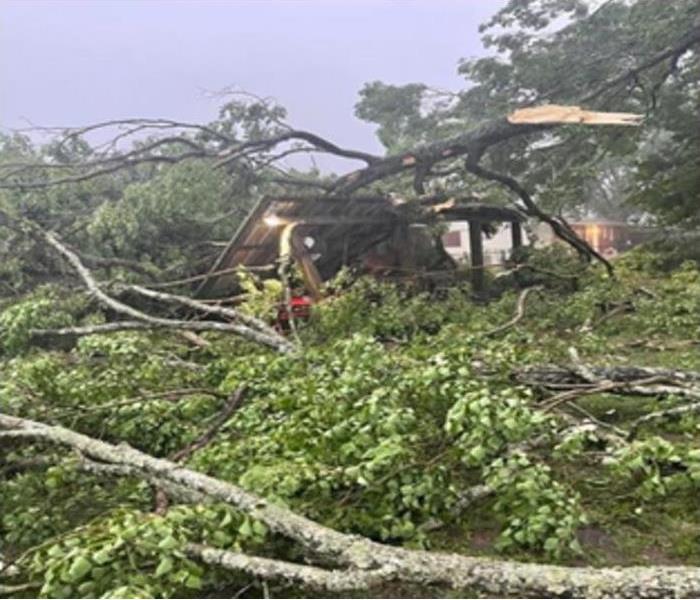The Dangers of Thunderstorms | SERVPRO® of Montgomery
7/21/2021 (Permalink)
 At SERVPRO®, we understand severe weather can be stressful. Always be prepared ahead of the storm, and be sure to have alerts set up.
At SERVPRO®, we understand severe weather can be stressful. Always be prepared ahead of the storm, and be sure to have alerts set up.
When you think of severe weather, tornadoes may quickly come to mind. There’s a good reason for that.
In the state of Alabama, we experience a large number of tornadoes each year, averaging 44 tornadoes annually. While these storms are most common during the spring, they can occur at any point in our warm, humid conditions.
But while tornadoes are definitely a weather danger to keep in mind, it’s also a good idea to pay attention to thunderstorms.
Thunderstorms are defined as any storm that involves thunder. These storms are so common we often disregard them. But high winds, lightning, hail, flooding, and other issues involved in thunderstorms can quickly turn dangerous.
A thunderstorm moves into the severe category when it contains hail that is one inch or larger and straight-line winds of 58 miles per hour or more. Here’s what you should know about potential thunderstorm hazards:
Damage and injury from lightning strikes. You now know that thunderstorms always involve thunder. But did you know they also always have lightning? That’s because thunder and lightning are always paired together; you won’t have one without the other, even if lightning isn’t visible. Lightning strikes cause around 300 injuries every year, and they can also contribute to property damage both from direct contact with lightning and indirect effects such as fallen trees.
Property damage due to hail. When it comes to hail, there are two factors to consider: the size of the hail and the force with which it falls. These ice pellets can range in size from tiny to very large, and the bigger they are, the more dangerous they are. In severe thunderstorms, where hail is larger, pellets can propel with some force on your roof and siding, which can cause leaks and water damage.
Harm from flash flooding. Flash floods can occur any time there is heavy rain for a plethora of reasons—even if storm drains back up or small ditches become filled with water, heavy rain can quickly turn these things into a life-threatening flooding scenario. This presents a particular danger on the roads. If flash flood conditions are possible, it’s best to stay at home.
Thunderstorms are dangerous and can cause significant damage to homes or commercial spaces. If you have damage due to a thunderstorm, contact us for more information about our storm restoration practices.






 24/7 Emergency Service
24/7 Emergency Service